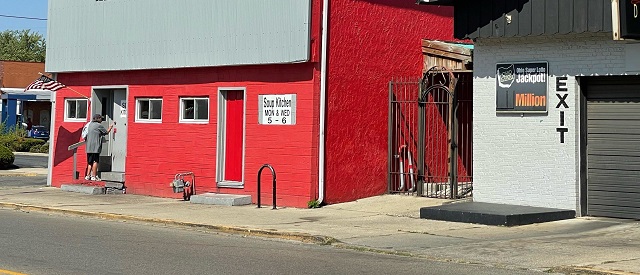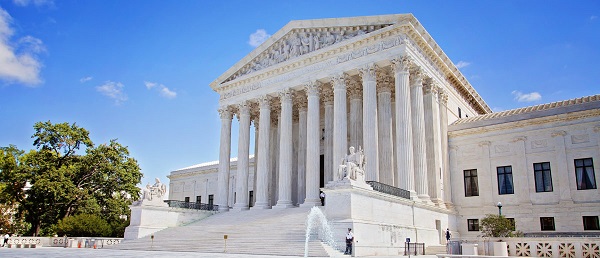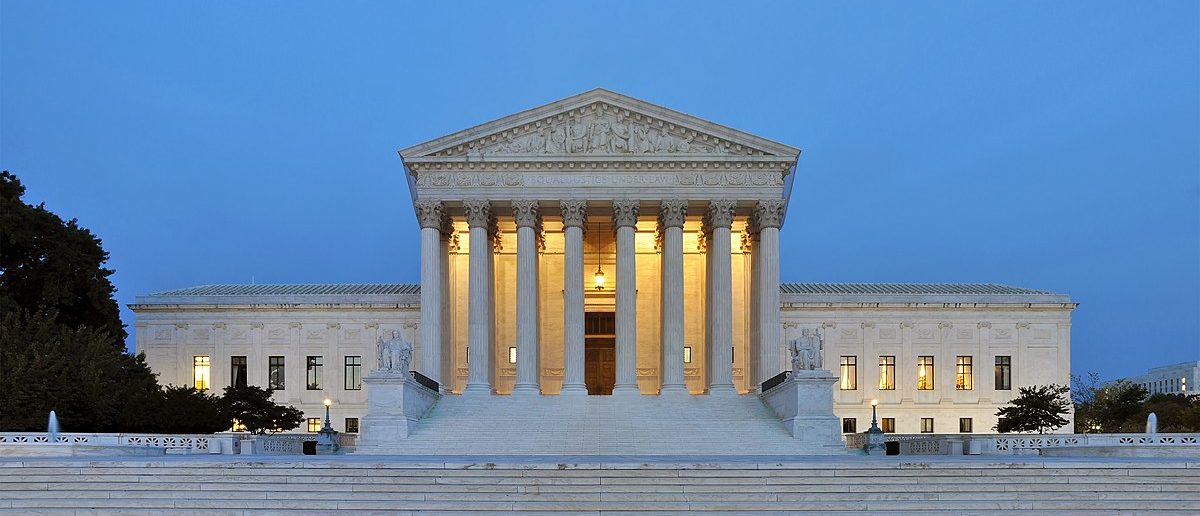Daily Caller
Shoplifting And Vehicle Thefts Soared As Haitian Migrants Poured Into Ohio Town, Police Data Shows

From the Daily Caller News Foundation
Reports of shoplifting and vehicle theft increased considerably in Springfield, Ohio, following the arrival of thousands of Haitian refugees, according to data obtained by the Daily Caller News Foundation through a records request.
The town, which had a population of 58,622 in 2020, has taken in between 12,000 and 20,000 Haitian refugees over the past three years, marking a population increase of between 20.4% and 34.1%. From 2021 to 2023, Springfield also saw a 51.5% jump in motor vehicle theft reports and a 112.8% spike in reports of shoplifting, data provided by the Springfield Police Division shows.
Springfield residents previously told the DCNF that the influx of Haitians has resulted in an uptick in car accidents, increased housing prices and strained public services. Bryan Heck, Springfield’s city manager, sent a letter to Democratic Ohio Sen. Sherrod Brown, Republican Ohio Sen. J.D. Vance and Republican South Carolina Sen. Tim Scott in July requesting federal assistance to deal with the pressure migrants had placed on the housing supply.
Inhabitants of the town also told the DCNF that they had observed Haitians engaging in sex acts and other vices in public. The DCNF was unable to verify claims made by the town’s residents about Haitians engaging in public debauchery.
Springfield’s police department declined to comment on the crime data, which does not include information on the immigration status or demographics of offenders.
Springfield had a higher crime rate than the nation at large even before Haitians began moving there in large numbers. In 2019, for instance, the town had a violent crime rate of 493.8 per 100,000 residents, compared to the United States’ rate of 366.7 per 100,000, according to data compiled by the Federal Bureau of Investigation.
The number of motor vehicle thefts reported in Springfield increased from 324 in 2021 to 491 in 2023, according to police data. Shoplifting reports, meanwhile, jumped from 295 cases in 2021 to 628 in 2023.
Large numbers of Haitians began arriving in Springfield to meet the demand for labor after the city’s chamber of commerce successfully attracted new businesses to the city, according to The New York Times. While the migrants have attracted the ire of some residents, many are paying taxes to support the community.
Republican Ohio Gov. Mike DeWine has set aside $2.5 million to help Springfield deal with the migrant surge and announced Wednesday that he would deploy the Ohio State Highway Patrol to assist with traffic enforcement in the municipality. The issue of poor driving among refugees became a flashpoint in the community after a Haitian national driving a minivan without a license swerved in front of a school bus in August 2023, killing an 11-year-old boy and injuring roughly a dozen other students.
One Springfield resident, a pastor, told the DCNF that the town had accidents every day as a result of the influx of Haitians. A local towing employee confirmed that there had been an uptick in wrecks.

Volunteer teacher Hope Kaufman leads Haitian students during an English language class at the Haitian Community Help and Support Center in Springfield, Ohio. (Photo by ROBERTO SCHMIDT / AFP)
Police recorded just two reported cases of animal cruelty in 2021 and none in 2022 or 2023, failing to provide evidence for rumors of Haitians stealing and eating residents’ pets. The number of reported murders and assaults in the town went more or less unchanged between 2021 and 2023.
Immigration authorities have had over 7 million encounters with migrants at the southern border since President Joe Biden took office in January 2021, according to Customs and Border Protection data. Beyond small towns like Springfield, the large number of migrants entering the country has caused budgetary strains in major cities like New York and Chicago as they attempt to accommodate the new arrivals, Bloomberg reported.
The Biden-Harris administration awarded Haitians Temporary Protected Status for the first time in 2021 and later extended that designation until 2026, protecting them from deportation and allowing them to work legally. The number of people on government benefits also increased considerably as Haitians moved into Springfield, Reuters reported.
As of April, the Biden-Harris administration had flown over 400,000 migrants into the United States, 154,000 of whom originated in Haiti. The administration halted the flight program after an internal report uncovered rampant fraud but has since allowed it to resume.
“We’re tired — help,” one Springfield resident told the DCNF when asked what message he wanted to send to the country. “Send help. Help us fix this.”
Automotive
Supreme Court Delivers Blow To California EV Mandates


From the Daily Caller News Foundation
“The Supreme Court put to rest any question about whether fuel manufacturers have a right to challenge unlawful electric vehicle mandates”
The Supreme Court sided Friday with oil companies seeking to challenge California’s electric vehicle regulations.
In a 7-2 ruling, the court allowed energy producers to continue their lawsuit challenging the Environmental Protection Agency’s decision to approve California regulations that require manufacturing more electric vehicles.
“The government generally may not target a business or industry through stringent and allegedly unlawful regulation, and then evade the resulting lawsuits by claiming that the targets of its regulation should be locked out of court as unaffected bystanders,” Justice Brett Kavanaugh wrote in the majority opinion. “In light of this Court’s precedents and the evidence before the Court of Appeals, the fuel producers established Article III standing to challenge EPA’s approval of the California regulations.”
Kavanaugh noted that “EPA has repeatedly altered its legal position on whether the Clean Air Act authorizes California regulations targeting greenhouse-gas emissions from new motor vehicles” between Presidential administrations.
“This case involves California’s 2012 request for EPA approval of new California regulations,” he wrote. “As relevant here, those regulations generally require automakers (i) to limit average greenhouse-gas emissions across their fleets of new motor vehicles sold in the State and (ii) to manufacture a certain percentage of electric vehicles as part of their vehicle fleets.”
The D.C. Circuit Court of Appeals previously rejected the challenge, finding the producers lacked standing to sue.
“The Supreme Court put to rest any question about whether fuel manufacturers have a right to challenge unlawful electric vehicle mandates,” American Fuel & Petrochemical Manufacturers (AFPM) President and CEO Chet Thompson said in a statement.
“California’s EV mandates are unlawful and bad for our country,” he said. “Congress did not give California special authority to regulate greenhouse gases, mandate electric vehicles or ban new gas car sales—all of which the state has attempted to do through its intentional misreading of statute.”
Daily Caller
Unanimous Supreme Court Ruling Inspires Hope For Future Energy Project Permitting


From the Daily Caller News Foundation
It comes as a surprise to many Americans when they learn that the vast majority of decisions issued by the U.S. Supreme Court are decided unanimously. Far too often, these unanimous decisions receive scant attention in the press due to their lack of controversy.
Such is the case with a key 8-0 decision the Court published May 29 that could help Congress and the Trump administration meet their goals to streamline permitting for energy projects in the United States. The decision narrows the scope of application of the National Environmental Policy Act (NEPA), a law whose environmental review provisions have been systematically used – and often abused – by climate alarm groups and plaintiff lawyers for decades to impede the progress of major projects of all kinds.
The case at hand involves the Uinta Basin Railway Project, which will transport oil produced in Utah’s Unita Basin and connect it to the national railway network so it can reach national markets. Because the rail line would parallel the Colorado River for roughly 100 miles, the D.C. Court of Appeals ruled in 2023 that the project’s developers would have to conduct a second, expanded environmental impact study under NEPA to try to assess nebulous potential impacts to air quality – often taking place thousands of miles away – or from a possible oil spill, rescinding a key permit that had been issued in 2021 by federal regulators.
Dear Readers:
As a nonprofit, we are dependent on the generosity of our readers.
Please consider making a small donation of any amount here.
Thank you!
It is key to note that that permit was issued by the federal Surface Transportation Board (STB) along with a 3,600-page environmental impact statement to comply with NEPA. In the conduct of the environmental review, the Wall Street Journal wrote that STB and the company assessed “the railway’s potential effects on local water resources, air quality, protected species, recreation, local economies, the Ute Indian tribe and much more.”
But for the plaintiffs and the D.C. Circuit Court, 3,600 pages of thorough scientific analysis just weren’t enough. They filed suit, complaining that the study didn’t try to assess potential impacts that might happen on dozens of other rail lines hundreds of miles distant, or, even more absurd, assess potential pollution in “environmental justice communities” as far away as the Texas and Louisiana Gulf Coast.
You really can’t make this stuff up.
If delay was the goal, the plaintiffs got a win, halting progress for four years. That is a sadly typical outcome for cases involving energy-related projects such as this one.
In their unanimous opinion written by Justice Brett Kavanaugh, the justices state, “The goal of the law is to inform agency decisionmaking, not to paralyze it.”
As I’ve written in previous stories, the vast majority of delays in permitting processes stem from provisions contained in major federal statutes designed to protect the environment and endangered species. In addition to NEPA, these laws include the Clean Air Act, the Clean Water Act and the Endangered Species Act. Among them all, none has been more broadly abused and misinterpreted by activist courts than NEPA.
In its analysis of the decision, the Institute for Energy Research says, in part, that the “decision means that agencies can approve projects like pipelines, railways, and dams and not be mandated to consider distant environmental effects of the projects, such as increased greenhouse gas emissions, that had stopped or delayed fossil fuel projects from moving forward, particularly during the Biden administration.” But, the author cautions, “the Uinta Basin Railway project could still face additional legal and regulatory hurdles within Colorado,” despite the ruling.
The good news is that even the liberal justices on the Supreme Court appear to be developing a growing awareness of just how absurd some of the claims made in lawsuits like this case really are. The unanimous nature of this decision inspires some sense of hope that the Trump administration can succeed in some of its efforts to reform the system and put an end to some of the most unjustified delays.
David Blackmon is an energy writer and consultant based in Texas. He spent 40 years in the oil and gas business, where he specialized in public policy and communications.
-

 espionage2 days ago
espionage2 days agoFrom Sidewinder to P.E.I.: Are Canada’s Political Elites Benefiting from Beijing’s Real Estate Reach?
-

 Business1 day ago
Business1 day agoSenator wants to torpedo Canada’s oil and gas industry
-

 Alberta2 days ago
Alberta2 days agoAlberta’s carbon diet – how to lose megatonnes in just three short decades
-

 David Clinton1 day ago
David Clinton1 day agoWhy Are Ontario’s Public Schools So Violent?
-

 Bruce Dowbiggin1 day ago
Bruce Dowbiggin1 day agoFUBAR: How Trudeau & Trump Rewrote This Century’s Political Handbook
-

 Business2 days ago
Business2 days agoRFK Jr. planning new restrictions on drug advertising: report
-

 Energy1 day ago
Energy1 day agoWho put the energy illiterate in charge?
-

 espionage1 day ago
espionage1 day agoFBI Buried ‘Warning’ Intel on CCP Plot to Elect Biden Using TikTok, Fake IDs, CCP Sympathizers and PRC Students—Grassley Probes Withdrawal






